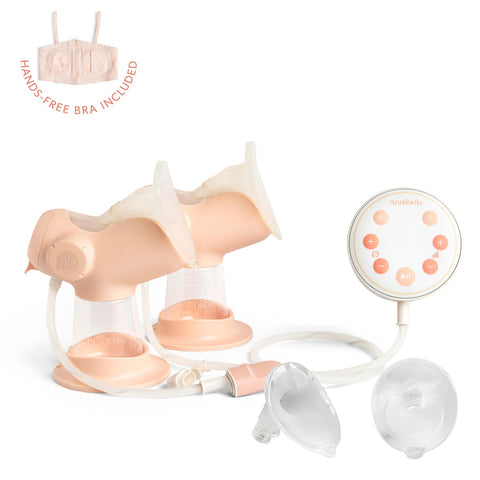A breastfeeding mom asking what time of day is best for pumping is a lot like Alice in Wonderland asking the Cheshire Cat: “Which way should I go from here?” The cat’s response, “That depends a good deal on where you want to get to,” is just what your lactation consultant might say. What time of day is best for pumping depends on why you are pumping in the first place. Whether you're aiming to build a freezer stash, provide an occasional bottle of milk for your little one while you're away, relieve engorgement, or increase your milk supply, the best time to pump isn't universal. It stems from your individual goals and your baby's feeding patterns. Let's delve into how the reason for pumping influences the ideal time to reach for your pump.
Pumping for a One-Off Bottle
If your goal is to have an occasional bottle on hand for a partner to give, perhaps allowing you a much-needed break or a short outing, then pumping in the morning often proves most fruitful. Milk supply naturally tends to be higher in the early hours of the day, after a night of hormonal activity. Many mothers find they can express a significant amount of milk during a morning pump session, which can then be stored for later use. Establishing a routine of pumping around the same time each morning can also help your body regulate milk production, consistently providing a good yield.
Pumping to Build a Freezer Stash
For mothers working to build a substantial freezer stash, a consistent daily pumping session is the best way to go. Choose a time that fits relatively easily into your daily routine and commit to pumping at that time every day. This signals to your body that there is a regular demand for extra milk at that particular time, encouraging your breasts to produce more milk in anticipation. Over time, this regular stimulation can lead to a noticeable increase in your overall milk production and a steadily growing supply in your freezer. Consistency is more important than the specific time of day in this scenario, though many still find mornings to be the most productive.
Pumping to Increase Milk Supply
If your primary goal for pumping is to increase your milk production, the strategy changes accordingly. One highly effective technique is to pump the empty breast immediately after your baby has finished nursing. Even if you don't express a large quantity of milk during these post-feeding pumps, the extra stimulation sends a powerful message to your body to produce more milk. Think of it as an additional signal that your baby needs more than what was available during the last feeding. It's perfectly normal if little to no milk comes out during these sessions; the goal is primarily the stimulation, not necessarily the immediate collection of a large volume.
Another powerful strategy for increasing milk supply involves incorporating a pumping session during the night, specifically between the hours of 12 am and 6 am. This timeframe is significant because prolactin, the primary hormone responsible for milk production, surges higher in response to stimulation during these early morning hours. Pumping during this period can capitalize on this natural hormonal rhythm, leading to a significant boost in your overall daily prolactin levels and consequently, increased milk production. While the thought of waking up to pump in the middle of the night might seem daunting, even a short pumping session during this time can be effective.
Finding Your Pumping Rhythm
You might find that the best time to pump is the time that works best for you and aligns with your specific breastfeeding and pumping goals. Consider your baby's feeding schedule, your energy levels, and your daily routine. Experiment with different times to see when you tend to produce the most milk and when pumping fits most comfortably into your day. Listen to your body, observe your milk output at different times, and don't be afraid to adjust your pumping schedule as your needs and your baby's needs evolve. Finding your favorite time to pump will probably yield more milk over time because you will be able to sustain your pumping routine if it works for you.







